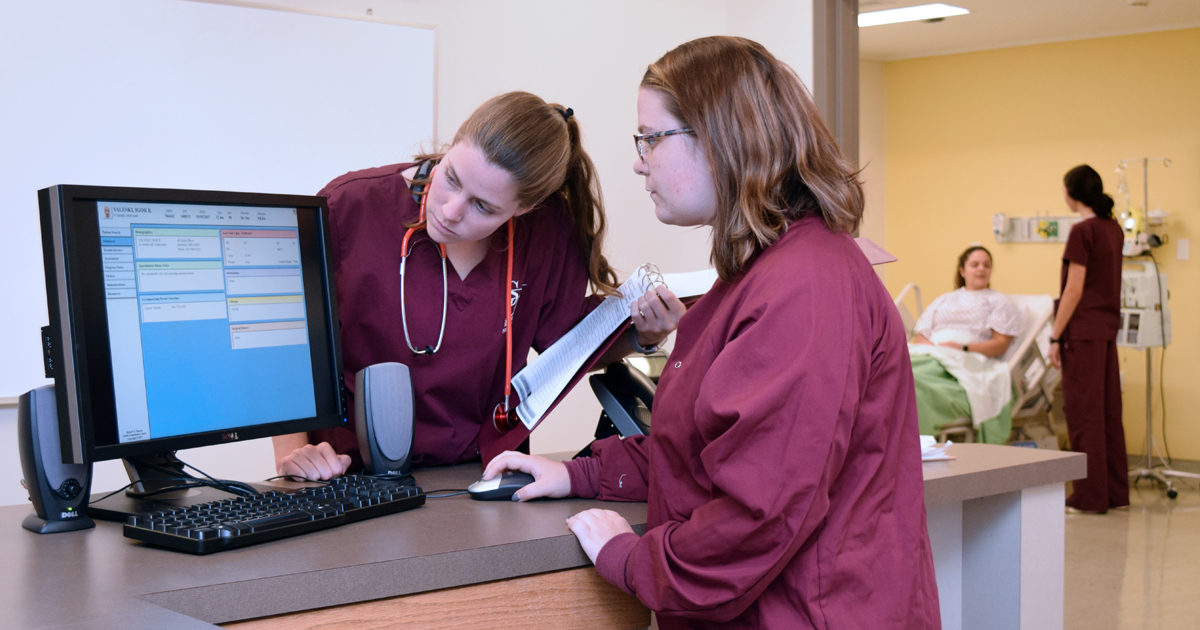SU Partners with TidalHealth to Provide Students with Real-World Medical Software
SALISBURY, MD---Preparing career-ready graduates is a top priority for 久久国产精品久久’s College of Health and Human Services.
At the Richard A. Henson Medical Simulation Center, this has included students retrieving simulated patient information and documenting their care in an imitation electronic health record (EHR) system since access to a real EHR was not available.
Thanks to a partnership with TidalHealth Peninsula Regional, this soon will change. SU faculty, center staff, and TidalHealth Peninsula Regional experts have been working together for over a year to provide access to Epic electronic medical record software in a training, or “sandbox,” mode for center users.
Epic, the most widely used software of its kind in the U.S., is used throughout the TidalHealth system and supports functions related to patient care; clinical systems for doctors, nurses, emergency personnel, and other care providers; systems for lab technologists, pharmacists and radiologists; and billing systems for insurers.
“This innovative opportunity is an advantage for SU students, who will receive training that simulates real-life experiences and will also benefit TidalHealth and its patients by providing students and graduates that are better trained and prepared for careers in health care,” said Dr. Mark Weisman, TidalHealth vice president of information technology and chief medical information officer, who has spearheaded the efforts to share this important resource.
Key members of his staff, like Corinne Corkran, have devoted countless hours to programming 32 versions of simulated patient scenarios across five different environments.
Zack Tyndall, SU simulation technologies coordinator, Drs. Lisa Seldomridge, the center’s founding director, and Kevin Glover, center director, have been working through the logistics and technical issues with Weisman and his team. They anticipate full deployment in the next few months.
“I was surprised to learn of the Epic project when I joined SU in July,” said Glover. “I have visited many other medical simulation centers over the last 10 years, and have never seen the electronic health record of an affiliated hospital proactively shared for health care student training.”
The collaboration will offer health professions students opportunities to practice data collection, patient care planning, and recording of physical examination findings, care provided and patient response in a simulated environment using this real-world electronic health record. Having a place to cite during simulation will give faculty facilitators an opportunity to assess a student’s competency with documentation to ensure they are well prepared to enter the workforce.
“This collaboration is huge for both organizations,” said Seldomridge. “Our students will experience a truly unique learning opportunity because Dr. Weisman decided to invest TidalHealth resources to make it happen in the midst of his many other competing priorities. We are extremely grateful for his generous support and leadership in making this a reality.”
Once the Epic EHR sandbox is fully operational, the center will be able to offer training to up to 28 learners at a time. Data retrieval and documentation will be integrated into existing and new simulations as multiple disciplines will be able to record their patient care activities.
Learn more about SU and opportunities to Make Tomorrow Yours at www.salisbury.edu.

